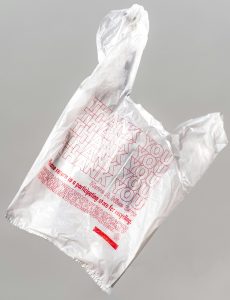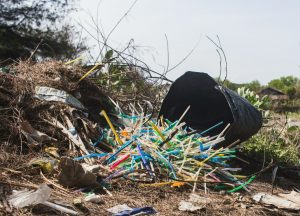Plastic Packaging Regulations Are Increasing Across the Globe. Is Your Brand Packaging Designed for Compliance?

According to EPA estimates, the amount of plastic waste in the United States’ municipal solid waste system has grown continuously since 1960. Plastic waste generated in the U.S. increased from 0.4% of total municipal solid waste in 1960 to 12.2% in 2018. This waste predominantly consists of containers and packaging, including single-use products, such as bags, wraps, and bottles.
To address the problem of plastic packaging waste, governments across the globe are enacting regulations aimed at reducing plastic pollution and promoting sustainable practices.
Here’s a look at some of these regulations:
United States
In the U.S., there are no federal regulations related to packaging waste. However, states are increasingly enacting laws aimed at reducing plastic waste. Currently, 12 states have single-use plastic bag bans including California, Colorado, Connecticut, Delaware, Hawaii, Maine, New Jersey, New York, Oregon, Rhode Island, Vermont and Washington.

Photo by Christopher Vega on Unsplash
California’s Plastic Pollution Prevention and Packaging Producer Responsibility Act shifts the plastic pollution burden from consumers to producers.
By 2032 the law requires producers to ensure that:
- 100% of packaging in the state to be recyclable or compostable
- 65% of all single-use plastic packaging to be recycled
- 25% reduction in plastic packaging
Washington’s plastics law requires producers of many everyday products sold in plastic packaging to include a minimum amount of recycled plastic in their packaging.
Under this law, by 2036, all packaging for covered product categories including beverage containers, household cleaners and personal care products, plastic wine containers, and dairy milk containers must include at least 50% post-consumer recycled content, except for trash bags, which are required to contain 20% after 2027.
Outside the U.S.
The list of governments that have enacted laws to address the problem of plastic packaging waste is a long one and includes the European Union, Canada, and India.
Under the EU’s Directive on Single-Use Plastics, single-use plastic products cannot be placed on the markets of EU Member States. This applies to cotton bud sticks, cutlery, plates, straws, stirrers, and sticks for balloons.
In Canada, Single-Use Plastics Prohibition Regulations (SUPPR) are part of the government’s comprehensive plan to address pollution, meet its target of zero plastic waste by 2030, and help reduce greenhouse gas emissions. The regulations prohibit the manufacture, import and sale of single-use plastic checkout bags, cutlery, foodservice ware made from or containing problematic plastics, ring carriers, stir sticks, and straws.

Photo by Finlan Aldan on Unsplash
India, too, has enacted rules to tackle plastic packaging waste. The rules, which took effect on July 1, 2022, prohibit the manufacture, import, stocking, distribution, sale, and use of single-use plastic items such as ear buds with plastic sticks, plates, cups, glasses, cutlery such as forks, spoons, knives, straw, trays, and wrapping or packing films around sweet boxes, invitation cards, and cigarette packets.
Rules prohibiting the manufacture, import, stocking, distribution, sale, and use of plastic carry bags having thickness of less than one hundred and twenty microns took effect in India on December 31, 2022.
Regulations like these coupled with growing consumer demand for eco-friendly products and packaging are fueling the growth of the sustainable packaging market. In 2023, the global sustainable packaging market was valued at approximately $271.86 billion. Market value is expected to exceed $393 billion by 2028.
As regulations addressing plastic and other types of packaging waste continue to evolve, brands must adapt by adopting packaging solutions with better environmental performance.
The EEASY Lid, the first jar lid innovation in 80 years, is a solution. Made of recyclable aluminum, the EEASY Lid can help brands reduce packaging waste, promote sustainability and future-proof their packaging to meet evolving regulations.
Government regulations addressing packaging waste are increasing and becoming more stringent. Is your brand packaging designed for compliance?
With the EEASY Lid, the answer is YES!
Contact us today to learn more.